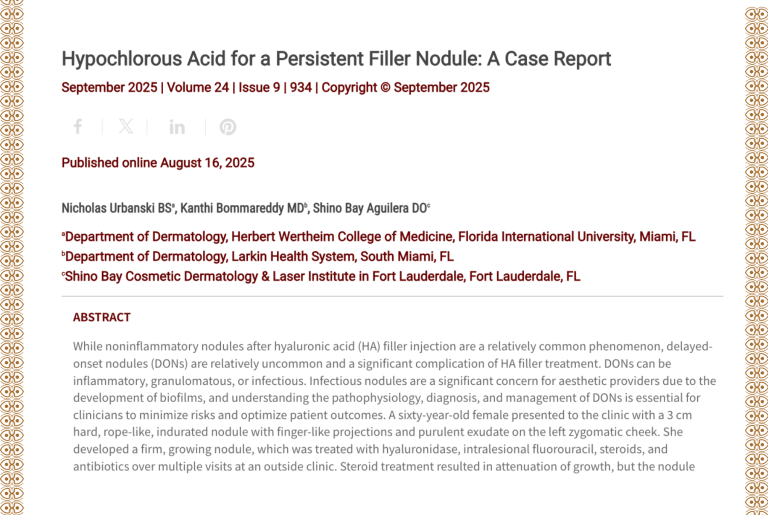
Biofilms, Hard Nodules, and the Surprising Power of Hypochlorous Acid
Most hyaluronic acid lumps after filler settle on their own, but a rare “delayed-onset” nodule can spell trouble—especially when it harbors an antibiotic-resistant biofilm. In one striking case, a 60-year-old woman developed a 3 cm, rope-like induration on her zygomatic cheek that failed hyaluronidase, steroids, fluorouracil, and multiple antibiotic courses. Introducing topical hypochlorous acid over three visits finally shrank the lesion without pain or drainage. Its broad-spectrum oxidative action breaks down stubborn microbial communities that evade both drugs and immunity, making it a game-changer for infectious DONs.
Ready to sharpen your approach to post-filler nodules? Read the full article for insights on spotting biofilm-driven complications, integrating hypochlorous acid into your protocols, and keeping your patients safe—and satisfied—after filler.
J Drugs Dermatol. 2025;24(9): doi:10.36849/JDD.9096
Blog write-up assisted by AI






